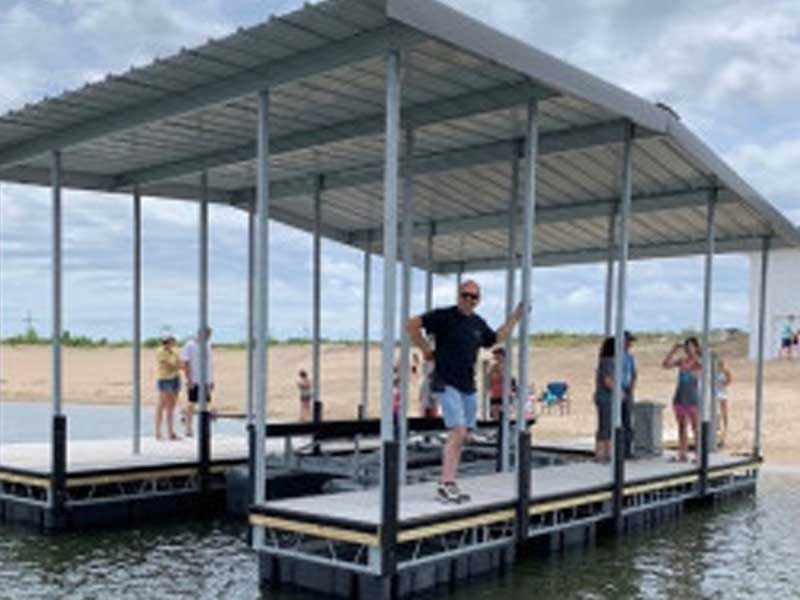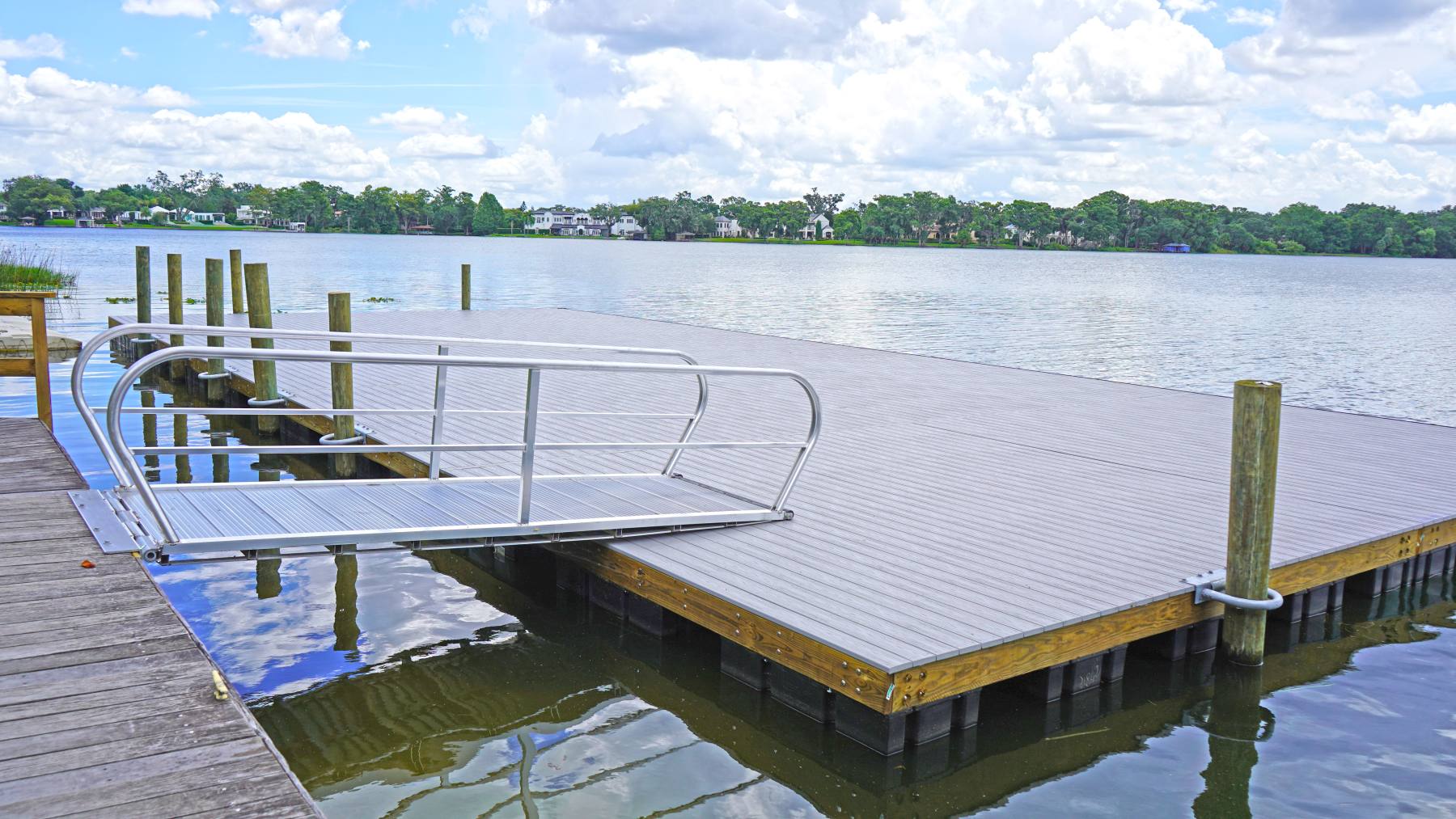Picking the Right Dock Company: Elements to Think About for a Seamless Setup
Picking the Right Dock Company: Elements to Think About for a Seamless Setup
Blog Article
The Ultimate Overview to Choosing the very best Floating Docks
Picking the optimal floating dock calls for a comprehensive understanding of various components that influence both performance and long life. Elements such as dock kinds, materials, and important functions dramatically influence your decision-making process.
Recognizing Floating Dock Types
When choosing a drifting dock, it is vital to understand the numerous types offered, as each offers distinctive functions and applications. Floating docks mainly come under 3 groups: modular, stationary, and pontoon docks.
Modular docks are composed of private areas that can be quickly put together or reconfigured, making them excellent for changing water degrees and diverse usages, such as recreational activities or commercial operations. Their adaptability enables customization based on particular needs.

Pontoon docks are characterized by their buoyant structure, commonly made up of several pontoons that give security and support. They are specifically appropriate for bigger vessels and are frequently used in marinas or for beachfront residential properties. Comprehending these kinds aids in picking the most ideal floating dock to fulfill specific demands, ensuring ideal functionality and safety.
Key Materials for Toughness
Selecting the appropriate products for floating docks dramatically impacts their toughness and long life. The most common products consist of timber, plastic, steel, and composite materials, each offering unique benefits and restrictions.
Timber, often preferred for its visual appeal, calls for regular maintenance to stand up to moisture and degeneration. Pressure-treated lumber can boost resistance to rot, however it may still be at risk to pests and weathering.

Plastic docks, made from high-density polyethylene (HDPE), are immune to rust, UV radiation, and influence, making them a prominent option for coastal environments. Their lightweight nature additionally assists in simple installment and relocation.
Metal docks, typically built from light weight aluminum or galvanized steel, provide remarkable toughness and resilience. They are resistant to deterioration, especially when treated, but may need additional insulation to avoid heat build-up in hot environments.
Composite products, combining timber fibers and plastics, provide the benefits of both wood and plastic, withstanding dampness and fading while requiring minimal maintenance. - floating dock company
Ultimately, the selection of products ought to straighten with environmental problems, planned use, and maintenance preferences to make certain the floating dock continues to be useful and visually pleasing with time.
Important Functions to Think About
While the option of materials is important, taking into consideration important attributes for floating docks is similarly crucial to guarantee ideal performance and customer complete satisfaction. One crucial attribute to analyze is the dock's buoyancy ability, which figures out just how much weight it can sustain without immersing. floating docks. This is crucial for fitting watercrafts, individual boat, and also entertainment tasks
Additionally, mobility is a considerable consideration. Depending upon your requirements, you may want a dock that is very easy to dismantle and move, specifically if you prepare to move it seasonally. Stability is an additional essential attribute; a properly designed floating dock ought to minimize activity triggered by wind and water currents, supplying a protected platform for users.
Safety and security attributes, such as non-slip surface areas and rounded sides, are likewise crucial to avoid crashes, especially in wet problems. Consider the accessibility of accessories, such as ladders, cleats, and bumpers, which can improve the functionality of your dock.
Setup and Upkeep Tips
Setting up and keeping a floating dock needs mindful planning and interest to information to ensure its durability and optimum performance. Begin by choosing an appropriate place that decreases exposure to strong currents and waves, which can create wear and tear. Make sure that the water deepness company website is sufficient for the dock's elevation which it is anchored safely to prevent motion.
Throughout setup, adhere to the manufacturer's standards closely, as incorrect setting up can endanger security. Usage top notch products immune to corrosion, such as aluminum or treated wood, to enhance longevity. Frequently check all parts, consisting of drifts, adapters, and securing systems, for indicators of damages or wear.
If your dock utilizes flotation tools, ensure they continue to be free and intact from leaks. By sticking to these installment and upkeep tips, you can delight in a practical and reliable floating dock for years to come.
Budgeting for Your Dock
Budgeting for your dock is an essential step that can substantially impact your overall satisfaction and investment in a waterfront property. Establishing a clear budget aids you navigate the different options available and guarantees you make notified decisions that straighten with your financial capacities.
Begin by establishing the size and style of the dock you need, as these aspects will greatly affect the expense. Floating docks can vary dramatically in rate, relying on materials, buoyancy, and functions like devices and ramps. Research various makers and suppliers to compare prices and comprehend the market value.
In enhancement to preliminary costs, consider ongoing costs such as upkeep, insurance policy, and possible fixings. Designate funds for these recurring prices to stay clear of surprises down the line. It's additionally prudent to budget for any needed licenses or inspections, which might be called for by local regulations.
Finally, maintain in mind the prospective roi. A well-planned dock can boost your building's worth and appeal, offering a favorable economic influence in the long-term. By budgeting properly, you can guarantee that your dock fulfills your demands without endangering your financial stability.
Conclusion
Finally, picking the optimal floating dock necessitates an extensive analysis of different aspects, consisting of dock kinds, products, vital functions, and setup procedures. click for source Focusing on toughness and compliance with neighborhood laws eventually enhances functionality and building value. Your Domain Name Cautious factor to consider of financial restraints will certainly even more guarantee a sound financial investment. By sticking to these standards, people can make informed choices that advertise long-term complete satisfaction and use in aquatic environments.

While the option of products is vital, considering necessary functions for floating docks is similarly important to ensure ideal efficiency and customer satisfaction.Setting up and maintaining a drifting dock requires careful planning and focus to detail to ensure its long life and optimum efficiency. Floating docks can vary dramatically in rate, depending on products, buoyancy, and attributes like accessories and ramps.In final thought, picking the perfect floating dock necessitates a thorough analysis of various factors, consisting of dock kinds, materials, important functions, and setup processes.
Report this page